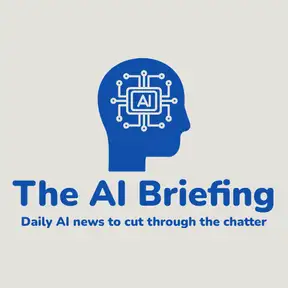Anthropic and Department of Defence sign deal. What does this mean for AI, war and security?
Hey, everyone. Welcome back to the AI briefing. Short snippets of AI news and insight to cut through the noise. So big news dropped from Anthropic that we need to talk about today, and we're talking about a $200,000,000 deal with the US Department of Defense. Yes.
Tom Barber:You heard that right. The AI company behind Claude is now officially working with the Pentagon, just down the road from me. Now I know what some of you might be thinking, so let's break down exactly what this means and why it matters. Alright. So here's what's happening.
Tom Barber:The DOD's chief digital and artificial intelligence office, it's a mouthful itself, just awarded Anthropic a two year agreement with a $200,000,000 ceiling. That's not necessarily $200,000,000 spent. That's the maximum amount over two years. The goal, to prototype what they're calling frontier AI capabilities for The US national security. But what does that actually mean in practice?
Tom Barber:Well, according to Anthropics head of public sector, they'll be doing three main things. First, they're gonna work directly with the DOD to identify where AI can have the most impact, then build working prototypes that are fine tuned on the Department of Defense data. Second, they'll collaborate with the defense experts to anticipate and prevent potential adverse adversarial, can't say that word properly, uses of AI, basically figuring out how bad actors might misuse the technology before they can. And third, they'll be exchanging insights and feedback to help the entire defense enterprise adopt AI responsibly. Now let's talk about the elephant in the room.
Tom Barber:AI and military applications, it's a sensitive topic. Right? Anthropic is being very deliberate in how they're framing this. They're emphasizing responsible AI deployment throughout the announcement. And their argument is basically this.
Tom Barber:The most powerful technologies carry the greatest responsibility. And in government context, where decisions affect millions of people, having AI that's reliable, interpretable, and controllable is absolutely essential. And they're also making the broader point about democracy and technology. Their take is that democratic nations need to work together to maintain technological leadership, essentially to to prevent authoritarian regimes from gaining an AI advantage. Whether you agree with that argument or not, it's clear they're trying to get ahead of the criticism.
Tom Barber:They're not just building AI for defense and walking away. They're specifically focused on safety testing, governance, and strict usage policies. Now here's something important. This isn't Anthropics first rodeo with government work. Just a few weeks ago, they announced that Lawrence Liverpool National Laboratory, that's a major US research facility, is expanding Claude access to over 10,000 scientists and researchers working on things like nuclear deterrence and energy security.
Tom Barber:They're already working with Palantir, integrating Claude into classified networks for defense and intelligence operations. And they've built something special, which is Claude Gov models, specifically for national security customers that run on AWS infrastructure, I'm sure, within GovCloud. So this DOD deal isn't anthropic suddenly jumping into the defense work. It's been them deepening a relationship that's been building for well over a year now. So what do we make of all this?
Tom Barber:On one hand, we've got an AI company that's been very vocal about safety and ethics now taking significant defense contracts. On the other hand, they're arguing that responsible actors need to be the ones building these systems, not leaving it to others. I think this is gonna be one of the defining questions of our time. How do we balance AI innovation with security and who gets to make these technologies? I'd love to hear your thoughts in the comments.
Tom Barber:Do you think AI companies should be working with defense organizations? Is this a necessary move, or does it compromise their mission? Let me know, and I'll see you in the next one.

